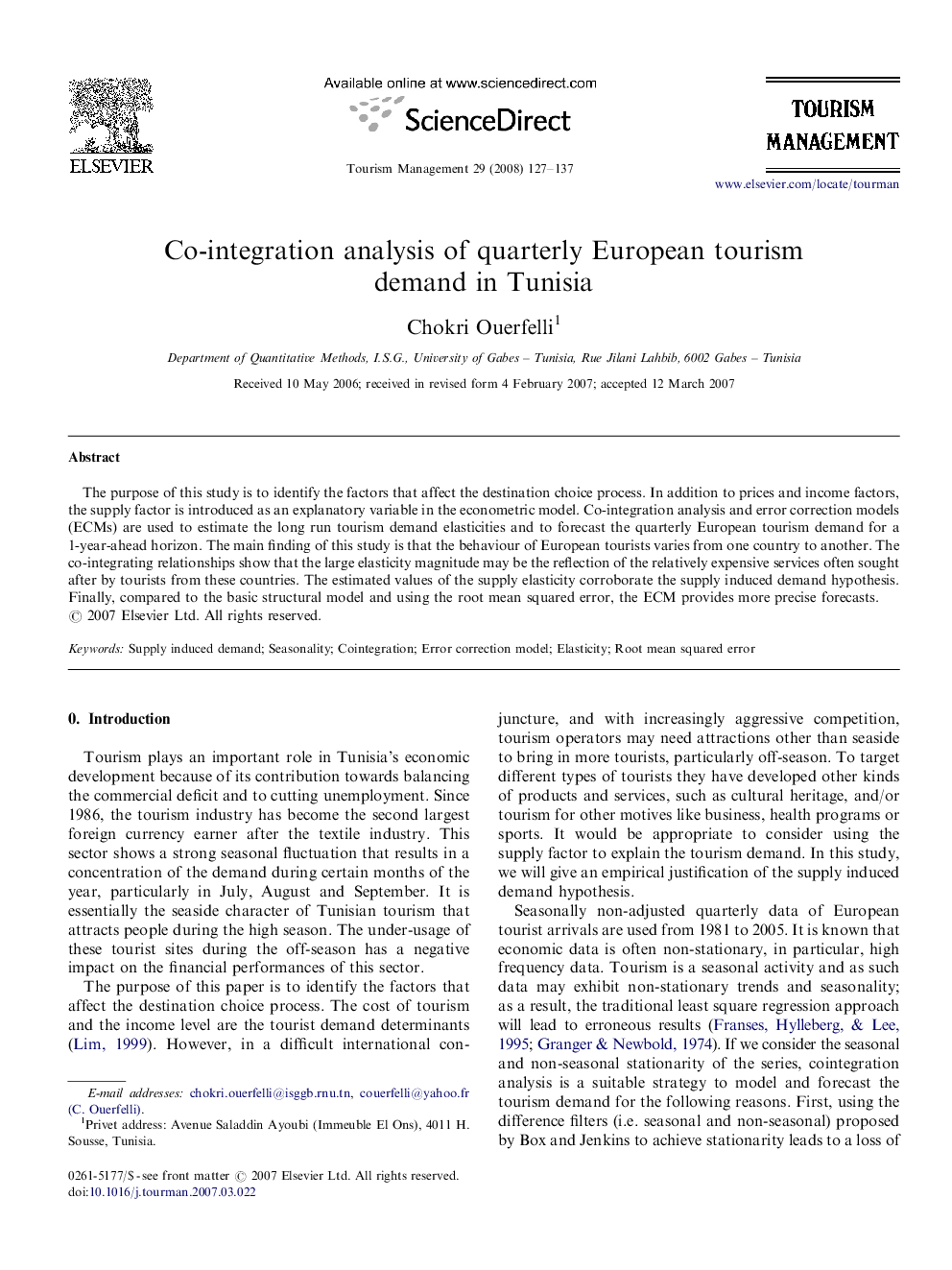| Article ID | Journal | Published Year | Pages | File Type |
|---|---|---|---|---|
| 1013230 | Tourism Management | 2008 | 11 Pages |
The purpose of this study is to identify the factors that affect the destination choice process. In addition to prices and income factors, the supply factor is introduced as an explanatory variable in the econometric model. Co-integration analysis and error correction models (ECMs) are used to estimate the long run tourism demand elasticities and to forecast the quarterly European tourism demand for a 1-year-ahead horizon. The main finding of this study is that the behaviour of European tourists varies from one country to another. The co-integrating relationships show that the large elasticity magnitude may be the reflection of the relatively expensive services often sought after by tourists from these countries. The estimated values of the supply elasticity corroborate the supply induced demand hypothesis. Finally, compared to the basic structural model and using the root mean squared error, the ECM provides more precise forecasts.
